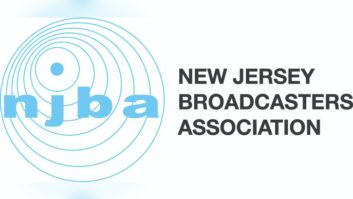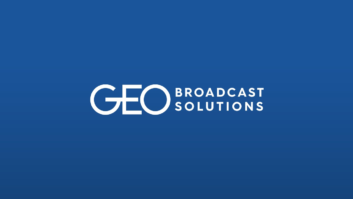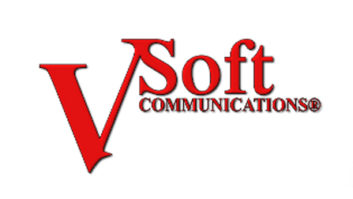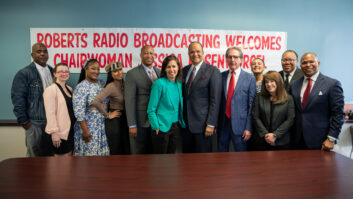Some smaller broadcasters are coming to the defense of geo-targeting; but some of the biggest broadcast groups are adamantly opposed.
The FCC has another hefty batch of comments to digest as it considers adopting the ZoneCasting technology from GeoBroadcast Solutions. Reply comments were due this week, and they further demonstrate the rancorous nature of discussion about using the system, which utilizes a series of FM boosters to geo-target content in specific areas of a radio station’s primary signal — for a few minutes of each broadcast hour, in the GBS proposal. Doing so requires changing the rules to allow boosters to originate programming.
The commission has been seeking input on studies done for GBS at KSJO(FM) in San Jose, Calif., and WRBJ(FM) in Brandon, Miss.
NAB has opposed the proposal, focusing on the interference it fears the technology could cause in transition zones. National Public Radio had concluded that the technology would threaten to cause widespread harm to the fidelity of the FM dial. Others opposed to the idea have concluded geo-targeting of content would cause financial harm to the business model upon which radio is based.
“Fabricated arguments”
More than 50 smaller radio companies argue in favor of allowing geo-targeting. In a consolidated filing, they specifically clapped back at interference arguments made by the NAB and NPR.
These broadcasters noted that NAB relied on the engineering statement submitted by John Kean, senior engineer at Cavell, Mertz & Associates, in its evaluation of ZoneCasting; they pointed out that Kean in the past wrote favorably about the technology for NPR Labs, regarding its compatibility of ZoneCasting with primary FM broadcasting.
The companies, which include Keyhole Broadcasting, KM Radio, Peak Radio, Phillips Broadcasting, Q Media Group and Sky Media, also noted a statement by Xperi that “if the main and zone boosters are not properly synchronized, disruptive digital audio outages ranging in duration from a few seconds to a minute” are possible.
“Xperi is correct that if the system is not properly built and maintained, there could be problems. There is little dispute in that assertion. But that is no different than if a broadcaster does not maintain its equipment or over or under modulates its signal. It must be assumed that no licensee would intentionally cause its signal to be degraded so that audience share would be lost,” the broadcasters concluded.
The group of small broadcasters urged the FCC to ignore the “fabricated arguments of NPR, NAB, Xperi, Press and Joint Comments.” [Read their filing.]
Don’t “micromanage”
For its part, GBS in its reply comments minimizes interference concerns, defends its field testing procedures and argues that NAB and other detractors ignore the basic tenets of broadcasting to serve communities with content delivered clearly and efficiently.
“The commission’s responsibility is to evaluate technologies to determine whether they would enable regulated entities to fulfill their duty of serving the public interest,” it wrote. “In the case of a voluntary technology, like the one at issue here, broadcasters are then responsible for determining whether a technology is right for their station and community of license and operating that technology in a manner consistent with the commission’s rules.
As for possible interference between boosters and the primary station in transition zones, GBS wrote: “The size of the transition area between geo-targeted content and main station content is entirely in control of the broadcaster, who can design their system to place the transition area over minimally populated, or ideally unpopulated, areas and thus make the transition a non-factor to the listener.”
In addition, the company dismisses fears that ZoneCasting might affect the performance of the Emergency Alert System. “It won’t since EAS messages will override any geotargeted content on boosters.”
GBS concludes that the FCC should not stand in the way of innovation: “The commission has not sought to, and obviously cannot, micromanage broadcasters as they deploy various technologies, whether that is FM boosters or single-frequency networks or ATSC 3.0. Rather, the commission’s responsibility is to evaluate technologies to determine whether they would enable regulated entities to fulfill their duty of serving the public interest.”
“Unjustified and hazardous”
But the NAB, in its own reply comments this week, said nothing it has seen in the FCC record in this case dissuades it from its conclusion that changing the rules to allow origination of “distinct, geo-targeted radio signals with a station’s service contour will cause material interference that harms listeners and threatens FM radio service.”
NAB said NPR, Xperi and “the vast majority of commercial FM radio stations” believe ZoneCasting will raise “unsolvable technical problems.”
“The commission should know that GBS has tried for more than a decade to convince radio stations to support the ZoneCasting concept. During numerous meetings over the years with NAB and individual broadcast companies, GBS has provided a parade of economic and technical information supposedly supporting why GBS’s proprietary technology would help broadcasters. GBS failed, however, to put forth any compelling case to broadcasters as to why the FCC should upend its longstanding policy concerning boosters,” NAB wrote.
The company has expended “considerable resources to urge the FCC to foist ZoneCasting upon the industry,” NAB says.
Some of the largest radio groups are opposed as well. iHeartMedia, Cumulus, Audacy, Beasley, New York Public Radio and Salem Media Group filed joint comments reiterating their concern and urged the commission to “terminate, or at a minimum table, this unjustified and hazardous rulemaking proposal.”
[Related: “NABOB and MMTC Stand Up for Geo-Targeting”]











